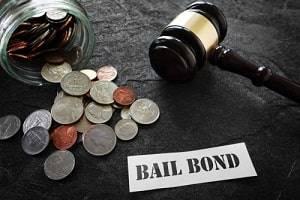What Is the Difference Between Bail and Bond in Texas?

Have you recently received word that a loved one has been arrested on criminal charges? If so, you are likely wondering what, if anything, you can and should do next. Depending on the situation, you might have heard that your loved one needs to come up with bail money or obtain a bail bond. In everyday conversation, the terms “bail” and “bond” are used interchangeably, but the two are not exactly the same. There are several important differences that you should understand before you take any steps to get your loved one out of jail. The good news is that our team is here to help.
Understanding Bail
When a criminal suspect is arrested, he or she will be brought before a judge for a preliminary hearing, and dates will be set for future hearings, including trial. In many cases, trial dates may be set for many weeks or months after the initial arrest. During the preliminary hearing—or in a separate bail hearing, if needed—the judge will consider the circumstances of the situation and determine if collateral is necessary to ensure that the suspect appears as required for future proceedings. This collateral is known as bail, and it is usually set in dollar amounts.
If the judge determines that bail is necessary, the amount will be set based on a number of factors, including the severity of the alleged criminal offense, the risk that the suspect will flee the area, and the danger that the suspect may present to the community at large. Many jurisdictions use a fairly standardized system for setting bail amounts, but ultimately, the decision is up to the judge. Some cases may involve bail of a few hundred dollars, while others may see bail set at hundreds of thousands of dollars or more. There are situations in which the judge may refuse to set a bail amount and require that the suspect remains in jail until trial. Such decisions are typically reserved for the most serious alleged crimes and repeat violent offenders.
It is important to keep in mind that if the defendant appears as ordered at all of the required proceedings, he or she is entitled to a refund of the bail that was paid, regardless of the outcome of the case. Fees and fines may be applied, which can reduce the refunded amount, but even a suspect who is found guilty can be reimbursed for his or her bail.
What Is a Bond?
A bond is essentially an agreement or a contract. In the context of bail, a bail bond is an agreement between the suspect and the court that the suspect will show up as required for all future court proceedings. Many states, including Texas, allow private bail bondsmen to help alleged offenders create bond agreements. Under the terms of a bail bond, the suspect must pay 10 percent of the total bail amount to the bail bondsman, who will then pay the suspect’s bail with the court. The suspect can then be released from jail.
The bail bondsman is then responsible for ensuring that the defendant appears in court as ordered. If the suspect fails to appear, the bail bondsman will find the suspect and return him or her to jail.
Speak With a Collin County Bail Bond Agent
To learn more about posting a bond to get your loved one out of jail, contact an experienced Dallas bail bondsman at Doc’s Bail Bonds today. Our skilled team will work hard to help you meet the requirements of the court so that your loved one can be released quickly. We are available 24 hours a day, 7 days a week, and we offer flexible payment options to make things as easy as possible for you. Call us at 214-747-4110 to get the assistance you need at any time of the day or night.
Source:
https://statutes.capitol.texas.gov/Docs/CR/htm/CR.17.htm










